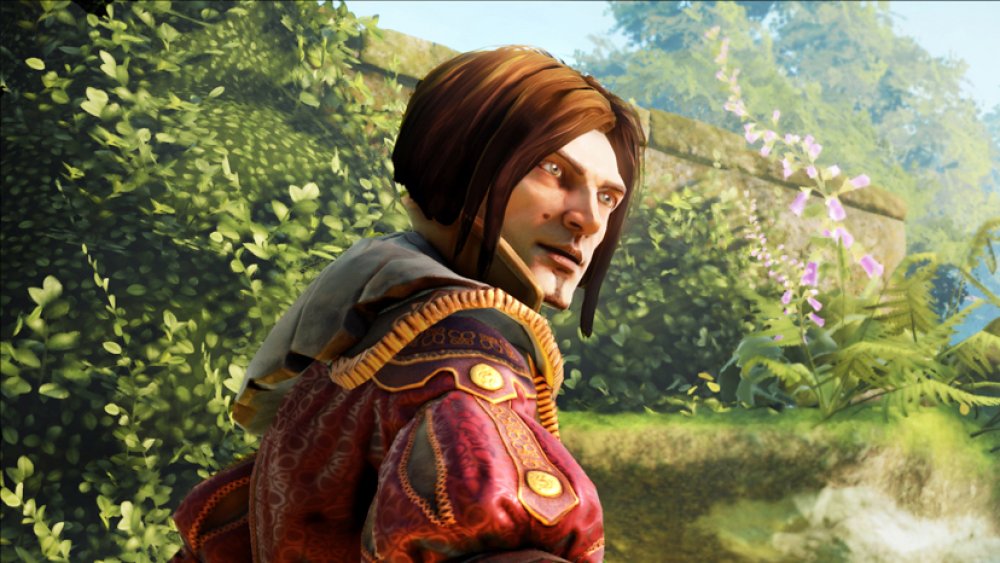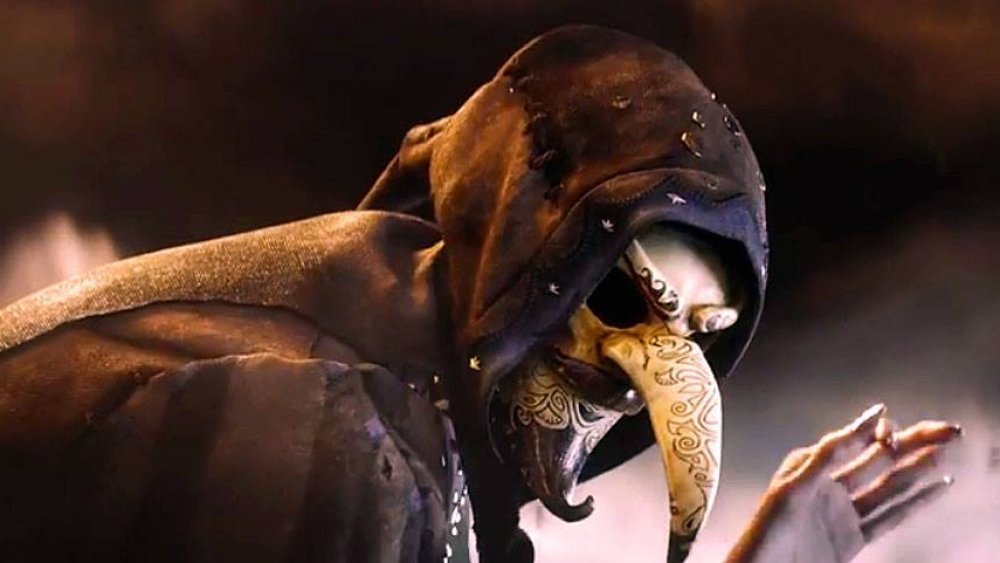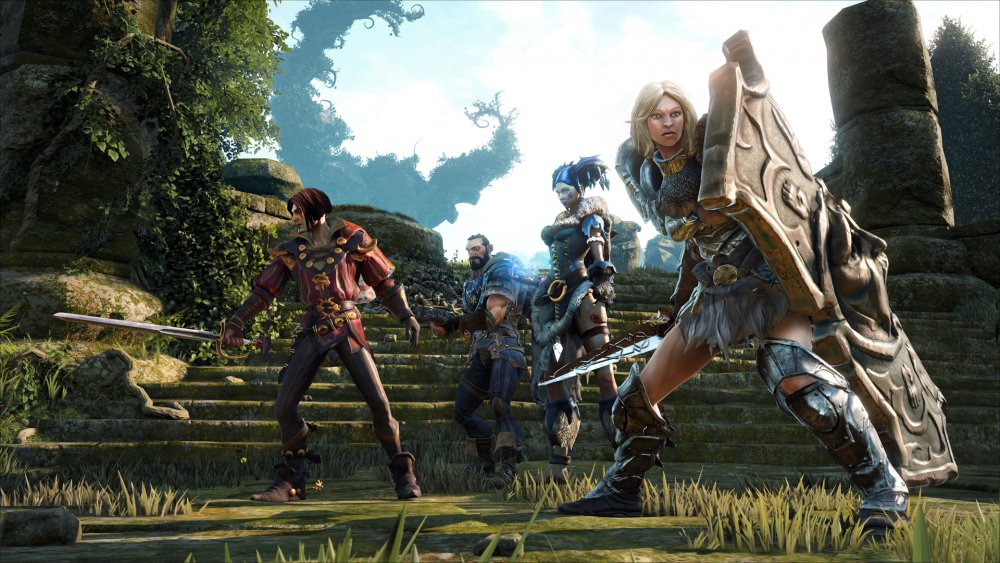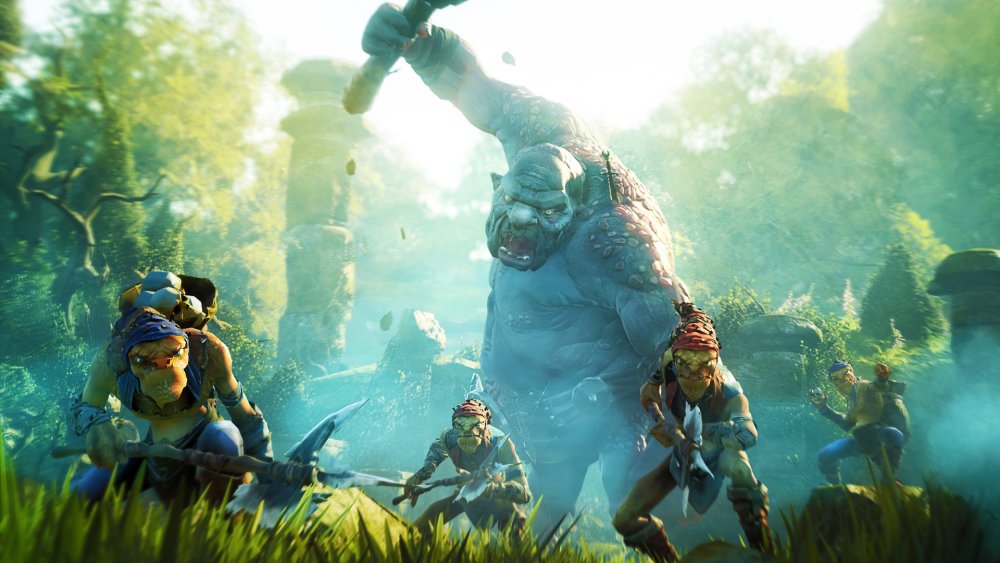The Real Reason Fable Legends Was Never Released
Fable used to be the talk of the Xbox town, and the selling point of the Xbox and Xbox 360. The Fable franchise was a comedic take on the classic medieval fantasy, caught somewhere between a The Lord of the Rings novel and a Monty Python skit. Even though game designer Peter Molyneux often promised features that never appeared in the series, gamers always looked forward to the next entry.
However, the Fable train was going to derail eventually, and that occurred during Fable Legends' development. Microsoft sunk so much money into the project it became one of the most expensive cancelled games ever produced. You may know that Microsoft cancelled Fable Legends, but not many know why. What thoughts ran through the minds of the company executives when they scrapped the game and closed Lionhead studios? Let's explore.
Fable Legends was a nightmare to produce
Lionhead Studios had a very specific way of working, mostly by relying on Peter Molyneux to wear many different hats. He designed, handled PR, and did everything else usually saved for employees lower on the totem pole. When Molyneux left Lionhead, the studio was pressured to make a game as a service, a model Lionhead had never tackled before. This led to the concepts behind Fable Legends.
Developers had general ideas for the game, such as focusing on asymmetric 4v1 multiplayer, but struggled to flesh them out. Level design suffered because cameras had to be restricted to 2D left-to-right movement. Handling player character death and revival proved a challenge. The devs could not agree on how to implement potions. The list of design issues was longer than a Fable 3 gnome's nose.
To make matters worse, Fable Legends was built in Unreal Engine 4, which reportedly wasn't ready for prime time. This resulted in a slew of bugs that would be fixed in subsequent patches that introduced their own bugs. Lionhead Studios tried to head off the balance issues by hiring a "competitive multiplayer expert," only to ignore the bulk of the expert's advice and concerns.
Some say Fable Legends was a bad idea
According to Eurogamer's sources , Fable Legends was plagued by one bad decision after another, which eventually created an unsalvageable game. For instance, Fable Legends was designed as free-to-play, and, as far as free-to-play titles went, it looked beautiful. Too beautiful, in fact. One developer claims a particular game level cost Lionhead "a huge amount of development time and money," and the developers created 16 more levels on top of that.
All of the work that went into Fable Legends ballooned its development time. Lionhead spent so much time polishing its 17 in-game areas that it missed its 2015 release window, which was selected for maximum player retention. Even worse, Legends was a free-to-play game launching during a time when players were reportedly starting to become wary of such titles and their inevitable anti-consumer microtransactions. The universe was seemingly against Fable Legends from the beginning.
Fable Legends' cancellation was likely just business
Thanks to all the blood, sweat, and tears Lionhead Studios put into Fable Legends, its budget expanded to $75 million, and Microsoft pulled the plug.
While Microsoft never officially commented on this decision, Microsoft Studios Europe general manager Hanno Lemke might hold some answers. According to Lemke, Microsoft wanted to "focus its investment and development on the games and franchises that fans find most exciting and want to play." Fable Legends' cancellation may have been purely a business move, born from a desire to save as much money as possible. Then again, one of Eurogamer's sources claims Lemke himself was behind the cancellation of Fable Legends and closure of Lionhead Studios.
Unless Microsoft opens up, the full story behind Fable Legends' premature end will likely never come out.




